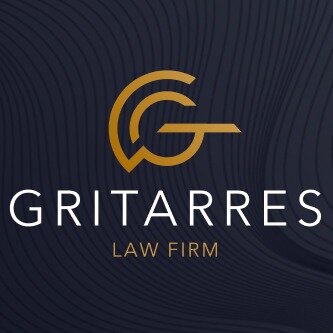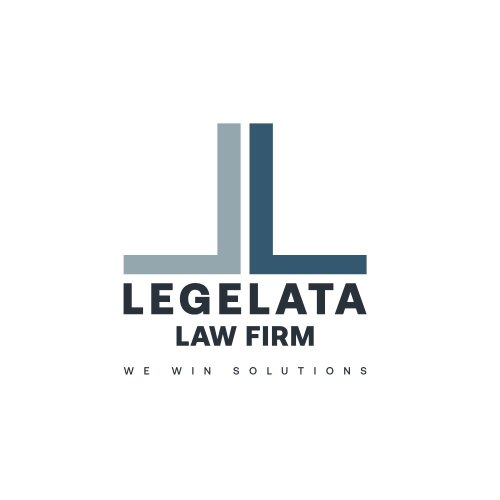Best Restructuring & Insolvency Lawyers in Armenia
Share your needs with us, get contacted by law firms.
Free. Takes 2 min.
Or refine your search by selecting a city:
List of the best lawyers in Armenia
About Restructuring & Insolvency Law in Armenia
Restructuring and insolvency law in Armenia is a specialized area that addresses the financial difficulties of businesses and individuals who are unable to meet their debt obligations. The framework is designed to facilitate either the reorganization of a financially distressed entity or, if reorganization is not possible, to ensure the fair and orderly liquidation of assets to pay creditors. Armenian law sets strict procedures and timelines for both voluntary and involuntary insolvency processes, and these procedures apply to both companies and individuals.
The Armenian bankruptcy law system aims to protect the rights of creditors while also giving debtors a chance to rehabilitate their business or seek a fair discharge from unmanageable debt. The legal framework covers appointment of insolvency managers, creditor meetings, asset valuation, and regulates the distribution of assets among creditors.
Why You May Need a Lawyer
Legal assistance is critical in restructuring and insolvency matters. Complexities often arise at every stage, from the initial filing to interacting with creditors or the court. Here are common situations when a lawyer's help is highly recommended:
- You or your business is facing severe financial distress and considering bankruptcy or restructuring.
- Creditors are pursuing legal action, such as asset seizure or court claims for unpaid debts.
- You want to negotiate settlements, restructure existing debt, or create a formal repayment plan.
- You need to understand the implications of insolvency on personal assets, business ownership, or ongoing contractual obligations.
- There are allegations of fraudulent or preferential transactions before or during insolvency proceedings.
- Disputes arise between stakeholders, including partners, shareholders, or creditors.
A lawyer provides guidance on your rights and obligations, ensures compliance with deadlines and court procedures, represents you during negotiations or court hearings, and minimizes your legal risks.
Local Laws Overview
Armenian restructuring and insolvency proceedings are primarily regulated by the Law on Bankruptcy of the Republic of Armenia, supported by the Civil Code and other related statutes. Key elements include:
- Types of proceedings: Armenian law distinguishes between bankruptcy (liquidation) and restructuring (reorganization), with different procedures for each.
- Who can initiate proceedings: Both debtors and creditors may petition for insolvency. Certain thresholds, such as minimum overdue debts and missed payments, must be met.
- Supervision and management: An insolvency manager (administrator) is appointed by the court to oversee the process, including asset management and creditor notifications.
- Moratorium on claims: Once proceedings start, most creditor actions against the debtor are put on hold, which helps prevent asset seizures and allows for an organized resolution.
- Creditor ranking: Creditors are classified into groups, and payments are distributed according to statutory priorities.
- Criminal and civil responsibility: Debtors, managers, and other stakeholders can be held liable for concealment, fraudulent transfers, or non-cooperation with the bankruptcy manager or court.
- Cross-border elements: Armenian law also contains provisions on international insolvency matters, though their application can be complex.
Frequently Asked Questions
What is the difference between restructuring and bankruptcy in Armenia?
Restructuring focuses on reorganizing a debtor's financial affairs to allow them to continue operations and repay debts under new terms, while bankruptcy generally leads to the liquidation of the debtor's assets to pay creditors and termination of operations.
Who can file for bankruptcy or restructuring in Armenia?
Both individuals and legal entities, as well as creditors, can initiate insolvency or restructuring proceedings if certain financial thresholds are met and evidence of insolvency is provided.
What happens after insolvency proceedings are initiated?
The court reviews the petition and, if accepted, appoints an insolvency manager. This manager takes control of assets, informs creditors, and oversees the process until liquidation or reorganization is complete.
Are all debts included in Armenian insolvency proceedings?
Most unsecured debts are included. However, certain debts, such as those arising from personal injury, family law obligations, or criminal fines, may have special rules or priority.
How are creditors prioritized in Armenia?
Creditors are paid in a set statutory hierarchy. Secured creditors (those with collateral) are generally paid first, followed by preferred creditors, and then unsecured creditors.
Can a debtor continue operating their business during restructuring?
Yes, the court may allow continued operation under supervision, especially if there is a realistic restructuring plan that benefits creditors and preserves business value.
Is personal bankruptcy available in Armenia?
Yes, individuals can also apply for bankruptcy under Armenian law, following similar procedures as for businesses but with some adjustments for personal circumstances.
What penalties exist for fraudulent actions in bankruptcy?
Fraudulent actions such as hiding assets, falsifying documents, or preferential payments can lead to civil liability, criminal charges, or exclusion from discharge of debts.
How long does a typical bankruptcy or restructuring case last?
Timeframes vary depending on the complexity of the case, but most proceedings are resolved within several months to a year. Some restructurings may take longer if there are complicated negotiations.
Can foreign creditors participate in Armenian insolvency cases?
Yes, foreign creditors can file claims and participate, though translation and legal representation may be required to navigate the Armenian legal system.
Additional Resources
If you seek further information or support on restructuring and insolvency matters in Armenia, consider exploring the following resources:
- Court of General Jurisdiction of the Republic of Armenia - Handles insolvency and bankruptcy hearings.
- Ministry of Justice of Armenia - Oversees the legal framework, supervises insolvency managers, and provides updates on legislative changes.
- Chamber of Insolvency Managers of Armenia - Regulates and supports insolvency professionals, offering guidance for debtors and creditors.
- Armenian Bar Association - Can help you find a qualified lawyer specializing in restructuring and insolvency.
- Financial ombudsman - Provides mediation services and information for disputes with financial institutions.
Next Steps
If you are facing financial difficulties or involved in an insolvency matter, consider the following steps:
- Take stock of your financial situation and collect all relevant documents such as contracts, debt agreements, and corporate records.
- Consult with a qualified Armenian lawyer specializing in restructuring and insolvency to assess your options early. Early legal advice can prevent costly mistakes.
- If filing for insolvency or restructuring, prepare your petition and supporting documents as required by Armenian law.
- Cooperate with the appointed insolvency manager and provide all requested information truthfully and promptly.
- Consider alternative dispute resolution or settlement with creditors where possible before resorting to formal proceedings.
Each insolvency case is unique. Personalized legal advice is crucial to protect your interests, ensure compliance, and navigate the complex procedures involved in Armenian restructuring and insolvency.
Lawzana helps you find the best lawyers and law firms in Armenia through a curated and pre-screened list of qualified legal professionals. Our platform offers rankings and detailed profiles of attorneys and law firms, allowing you to compare based on practice areas, including Restructuring & Insolvency, experience, and client feedback.
Each profile includes a description of the firm's areas of practice, client reviews, team members and partners, year of establishment, spoken languages, office locations, contact information, social media presence, and any published articles or resources. Most firms on our platform speak English and are experienced in both local and international legal matters.
Get a quote from top-rated law firms in Armenia — quickly, securely, and without unnecessary hassle.
Disclaimer:
The information provided on this page is for general informational purposes only and does not constitute legal advice. While we strive to ensure the accuracy and relevance of the content, legal information may change over time, and interpretations of the law can vary. You should always consult with a qualified legal professional for advice specific to your situation.
We disclaim all liability for actions taken or not taken based on the content of this page. If you believe any information is incorrect or outdated, please contact us, and we will review and update it where appropriate.
Browse restructuring & insolvency law firms by city in Armenia
Refine your search by selecting a city.

















